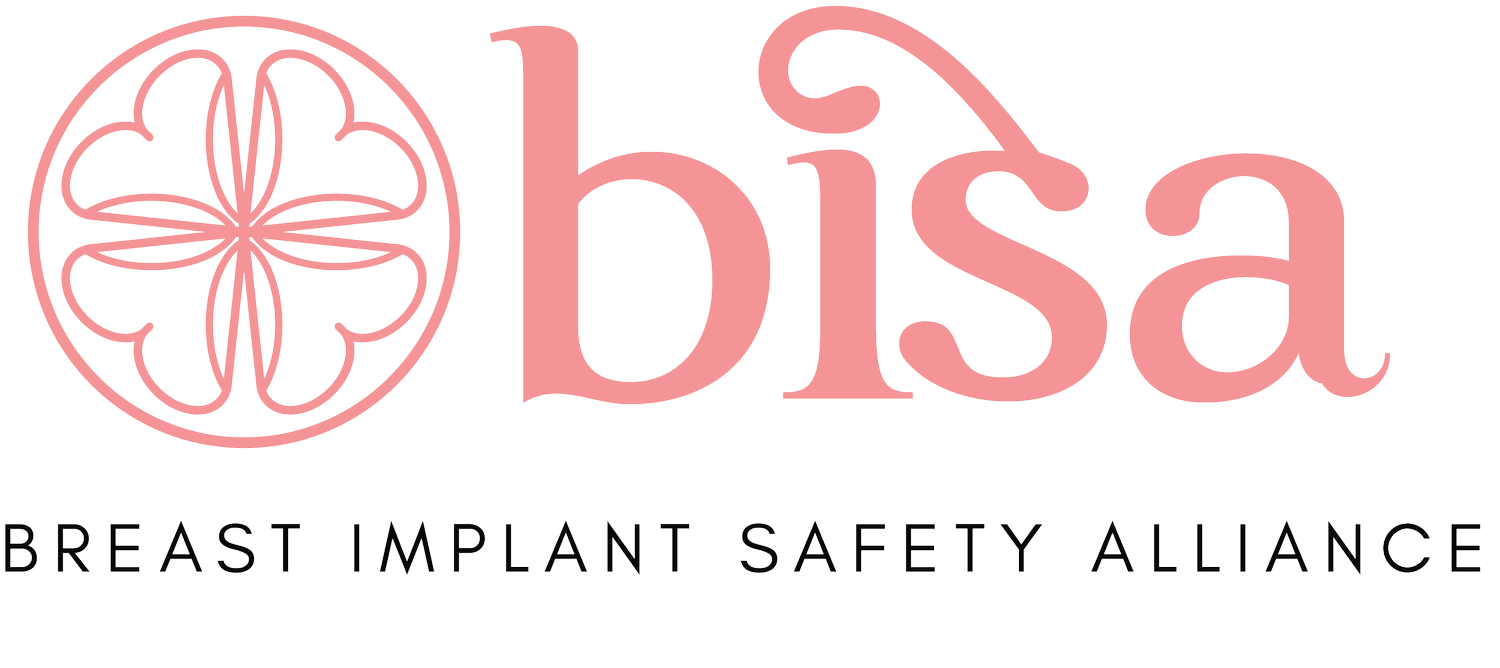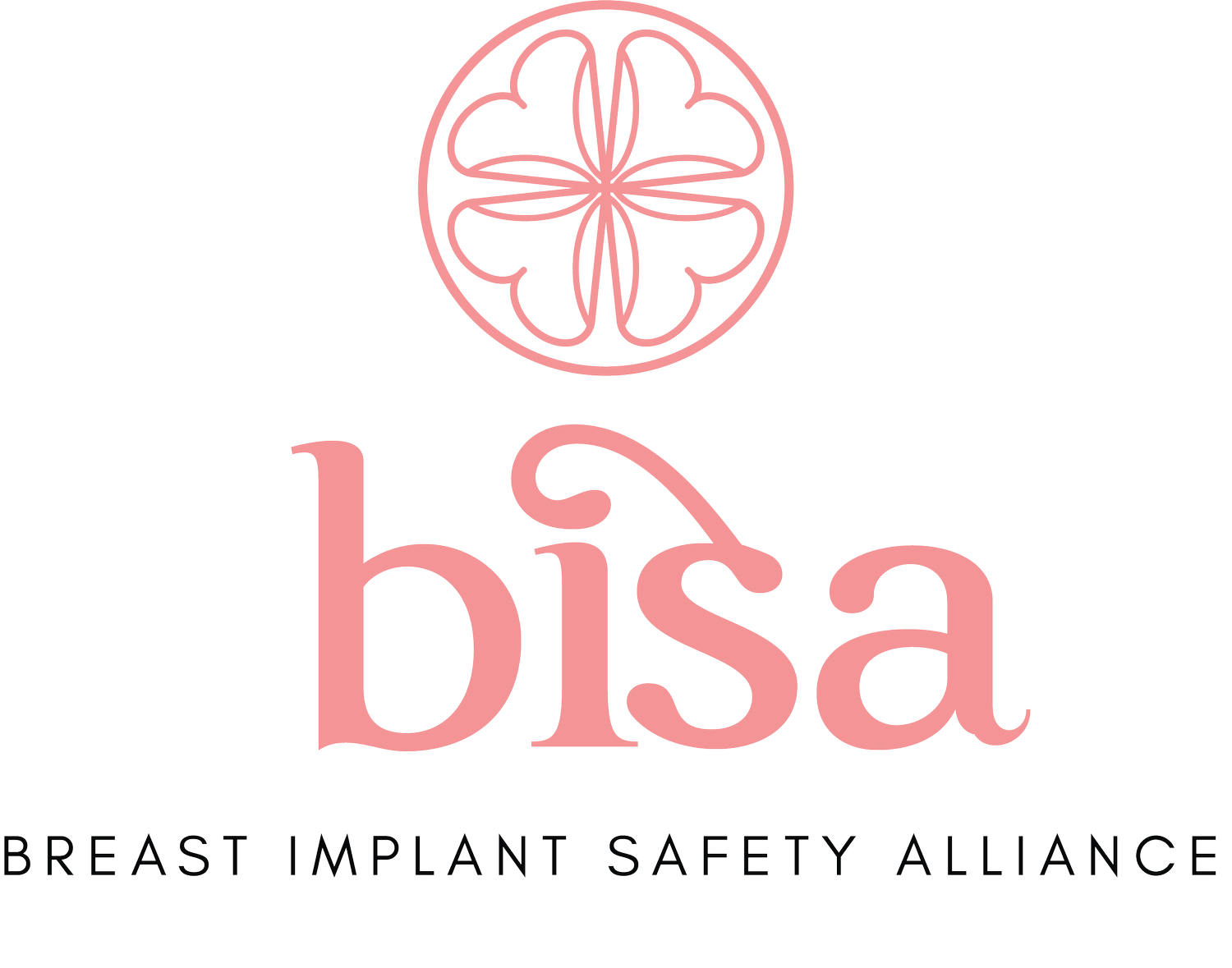Frequently Asked Questions
BISA continues to compile frequently asked questions and answers, including different viewpoints from medical societies, researchers, and patients.
Where can I verify my surgeon's medical license, check for disciplinary action or file a report to the state medical board?
In the U.S., you can verify a surgeon's medical license and check for disciplinary action at the Federation of State Medical Boards.
Where can I verify surgical facility accreditation meets nationally recognized standards?
Please visit the American Association for Accreditation of Ambulatory Surgery Facilities and
Accreditation Association for Ambulatory Health Care for more information.
Does BISA recommend surgeons?
No, BISA does not endorse or recommend any particular surgeons. We do suggest you use a board-certified plastic surgeon. There are patient-created websites and support groups on social media where patients share their experiences with surgeons.
If you choose to have your capsules removed and think testing to rule out BIA-ALCL is applicable to you, ask your surgeon if he/she is practicing removal and testing according to the most recent NCCN guidelines recommended by the FDA.
How can I verify that my surgeon is board certified?
In the US, you can check to see if your plastic surgeon is board-certified on the American Board of Plastic Surgery (ABPS) website—the only board recognized by the American Board of Medical Specialties (ABMS).
Note: There is no ABMS-recognized certifying board with "cosmetic surgery" in its name. “Cosmetic” doesn’t always mean qualified.
In Canada, you can look for certification from the Royal College of Physicians and Surgeons of Canada (RCSC). International plastic surgeons should be board certified in their country of origin and be a member of ISAPS and IPRAS.
How can I find a board-certified plastic surgeon?
One way is to search for surgeons and filter by zip code on the American Board of Plastic Surgery website. You can also visit the American Society of Plastic Surgeons Connect.
Are breast implants safe?
Breast implants are FDA-approved devices for use in breast augmentation and breast reconstruction however they do have risks and potential complications. The FDA recently issued a Black Box Warning on breast implants due to serious health safety risks.
Will insurance pay for the removal of my breast implants?
Some insurance companies may pay for removal depending on your policy and specific criteria. Start by obtaining and reviewing a copy of your insurance policy. You could try to discuss with your doctor the specific medical reason(s)/diagnostic code(s) he or she may plan to apply to your procedure and if furnished a diagnostic code(s), you can apply that to your insurance research; this step can be difficult at times, some patients prefer their surgeon seek prior authorization from the insurance provider.
Prior authorization can be denied or approved and does not guarantee payment. Denials can be appealed and a notice is sent along with the denial as to the process of how to appeal. Employ a detailed approach when assessing your individual situation.
The NCHR Breast Implant Information Project provides resources for private insurance, Medicaid, and Medicare. The resources include a step-by-step guide, sample letters, and how to appeal a denial. Contact them at info@breastimplantinfo.org.
How are breast implants tracked?
Breast implants and other medical devices have not been well tracked, in large part, due to a lack of regulation. Patients and healthcare professionals can report to the FDA MedWatch program. Doctors are not required to report.
Where can I read real patients' experiences with breast implants?
Patients have been sharing their experiences with breast implants on social media. You can search the various platforms the with hashtags: #plasticsurgery, #breastimplants, #breastcancer, #breastimplantillness, #BIAALCL, and #explantsurgery.
It’s good to keep in mind that support groups that are not run by people with medical licensure are not ideal places to seek actual medical advice.
We will be adding stories to our website but you can check out NCHR Personal Stories.
How do I know if my breast implants or expanders have been recalled?
Try to locate your implant ID cards and contact your surgeon. For some, this has proved to be confusing. Not all patients were given implant identification cards, or the surgeon is no longer in practice.
What do I do if my breast implants have been recalled?
Check FDA and manufacturer’s current recommendations. Talk to your plastic surgeon. Consider your feelings about having the implants, and be sure to discuss the recall with your healthcare team.
Where can I find support groups for breast implant illness and other related issues?
Social media searches, following hashtags, and Support groups are all over social media. BISA does not currently endorse any particular support group but we try to remain unbiased in our support of information sharing. Some groups have over 100K members.
Breast Implant Victim Advocacy compiled a list of support groups. Be aware that even private groups can be accessed by attorneys, surgeons, and manufacturers.
Are breast implants causing my health issues?
Maybe. There is a chance, especially if the onset of your symptoms occurred after getting implants and were not present prior to getting them. No one can know for certain if your implant(s) are the main or only driver of your change in health status. There is no specific test available at this time that would help to decipher.
Some women find relief from their implant-provoked or related symptoms after they have their implant(s) and capsules removed through explant. No one can say that your symptoms are not from your devices with 100% certainty during these current times of related scientific controversy and gray area presence added to the recent FDA public notice of various cancers associated with breast implants, stemming from implant capsules; hence, the potential for complex symptoms.

Ask us a question!
Help build our Q&A bank.

